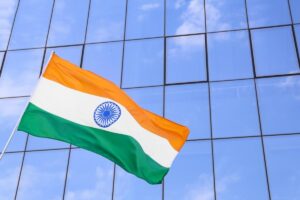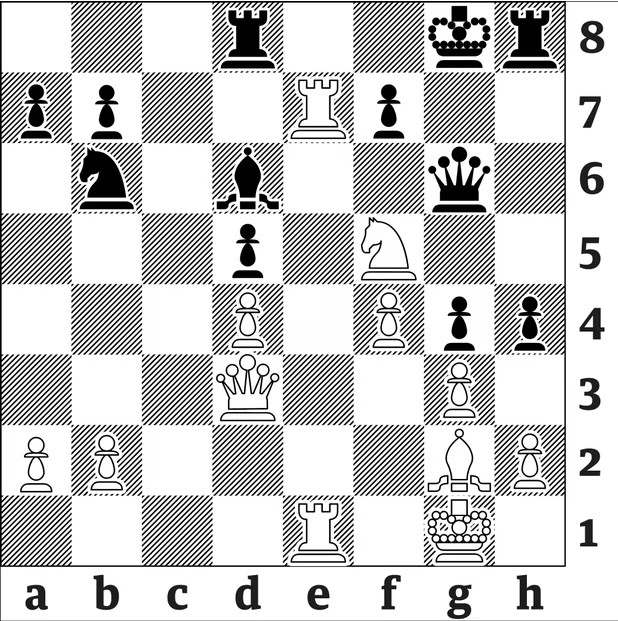
India imported $2.338 billion worth of gold in February 2025, according to the country’s Ministry of Commerce and Industry. This is 62% less than in February last year and 13% less than in January this year.
In general, for 2 months of the year, gold imports to India amounted to $5.025 billion, which is 38% less than the result of the corresponding period last year.
In 2024, according to the Ministry, India imported 812 tons of gold worth $58.096 billion. India is one of the largest consumers of gold in the world, producing almost no gold itself.

Indian Prime Minister Narendra Modi said that he remains a consistent supporter of peace, and “where we can act as peacemakers, we are happy to take on this responsibility.”
“Because India is the land of Gautam Buddha and Mahatma Gandhi. And Indians are not prone to enmity and conflict. Instead, we support harmony… We stand for peace. And wherever we can act as peacemakers, we are happy to take on that responsibility,” Modi said in an interview for Lex Friedman’s podcast, published on Sunday.
According to the prime minister, he has good relations with both Ukraine and Russia.
“I have close relations with both Russia and Ukraine. I can sit with President Putin and say that now is not the time for war. And I can also say to President Zelensky in a friendly way that, brother, no matter how many people stand with you in the world, there will never be a solution on the battlefield. The solution will come only when both Ukraine and Russia sit down at the negotiating table,” the Indian Prime Minister said.
“It was difficult to find peace at first, but the current situation provides an opportunity for meaningful and productive talks between Ukraine and Russia,” Modi emphasized.
According to him, the war has brought “a lot of suffering, even the Global South has suffered”. “The world is struggling with the crisis of food, fuel and fertilizers. So, the international community must unite in the pursuit of peace. As for me, I have always maintained that I am on the side of peace. I am not neutral. I have a position, and it is peace. And peace is what I am striving for,” Modi summarized.

India has officially extended the import permit for peas until May 31, 2025, which is a positive signal for Ukrainian farmers on the eve of the spring sowing campaign, the Ukrainian Pulses and Soybeans Association reported.
The industry association reminded that despite the traditional protectionist policy and restrictions on imports of agricultural products, India periodically opens temporary “import windows”, which are actively used by Ukrainian exporters of pulses.
“Almost all of 2024, a window of opportunity remained open for Ukrainian pea producers, as India, one of the world’s largest consumers of this crop, allowed duty-free imports. Such opportunities encourage farmers to increase their acreage, especially small and medium-sized businesses that are quick to respond to changes in market conditions,” said Antonina Skliarenko, President of the Ukrainian Bean and Soybean Association.
According to her, in 2025, the area under peas in Ukraine may increase by 15%, and in 2026, we can expect an even greater increase in production of this crop.
An additional factor that increases interest in growing peas is the finalization of the opening of the Chinese market for Ukrainian products and the signing of the relevant protocol on March 6, 2025.
“This is a historic event for the Ukrainian pea production, which opens up great export prospects. Given that China introduced a 100% duty on Canadian peas on March 7, Ukrainian producers are gaining a serious competitive advantage,” the head of the business association emphasized.

As part of the expansion of transport corridors and the development of international transportation, the first container train from India to Kazakhstan via Uzbekistan was launched.
According to the press service of JSC “Uztemiryulcontainer”, the train, which includes 12 twenty-foot containers, departed from the port of Mundra (India) to the station of Sorokov (Kazakhstan). The route passes through Iran, Turkmenistan, Uzbekistan and Kazakhstan, covering 1,585 km by sea and 4,300 km by rail.
Previously, container shipments from India to Uzbekistan (Mundra – Sergeli) have been successfully carried out along this route.

World central banks in November, according to preliminary estimates by the World Gold Council (WGC), increased the amount of gold in their foreign exchange reserves by 53.4 tons.
“Looking to the end of 2024, central banks around the world continued to play a leading role in gold demand,” said WGC analyst Krishan Gopaul. – “November was another month of gold purchases, with central banks adding a total of 53 tons to official reserves, according to available data. This continues the trend observed throughout the year: central banks, mostly from emerging markets, remained active buyers of gold, driven by a desire to find a stable and reliable asset in the face of global economic uncertainty.”
The largest buyers of gold in November were Poland (21 tons), Uzbekistan (9 tons), India (8.4 tons), and Kazakhstan (5.1 tons). According to Gopol, for the first time since April, China reported an increase in reserves (plus 5 tons). Other buyers included Jordan (4.1 tons), Turkey (3 tons), the Czech Republic (1.6 tons), Ghana (1.2 tons), Mongolia and Malta (less than a ton).
Singapore was the main seller of gold (5.2 tons). Also in December, the central bank of Finland reported a 10% reduction in its gold reserves to 44 tons, a sale that most likely took place the same month, WGC said.

India won the Open and Women’s Olympiads in Budapest, while for the first time in history no European team reached the podium in either event
India’s domination of the 188-team Budapest Olympiad was complete. Their winning Open score of 21/22 was a record, they finished four points clear of the chasing pack, while their four individual golds included a 3000+ rating performance by Gukesh Dommaraju, 18, who challenges for the world crown in November.
It was a seminal moment in chess history, comparable to the 1945 USA v USSR radio match when the Americans, quadruple Olympiad gold winners in the 1930s, were crushed 15.5-4.5 to launch 45 years of Soviet supremacy, interrupted only by Bobby Fischer.
India’s superiority was reminiscent of the legendary USSR teams of the 1950s and 1960s, which were packed with world champions and challengers and rarely lost a game, let alone a match. In Gukesh and Arjun Erigaisi, 21, India have what could prove to be the Mikhail Botvinnik and Vasily Smyslov or Anatoly Karpov and Garry Kasparov of the 2020s and 2030s.
For the first time in any Olympiad, no European team reached the podium in either the Open or the Women’s event, although fifth to 23rd places in the Open were all taken by European squads.

Yagiz Erdogmus v Nikita Meshkovs, Turkey v Latvia, Budapest Olympiad 2024. White to move and win.
Gukesh and Erigaisi, who won the boards one and three golds, scored at a pace that even Magnus Carlsen was unable to match. The Norwegian’s ambition of eliminating one of the few gaps in his career record remains unfulfilled, as he had to settle for top board bronze.
Gukesh is now up to No 5 in the world rankings, while Erigaisi has jumped to No 3. Both are poised to pass the 2800 rating landmark as soon as this weekend, when they are scheduled to play for Düsseldorf in the opening two rounds of the German Bundesliga. Games are due to start at 1pm BST on Saturday and 10am on Sunday.
On Wednesday, India’s prime minister, Narendra Modi, received the two Indian teams at his residence to congratulate them on their achievement, while Gukesh’s win against China’s Wei Yi has been awarded the Olympiad Best Game prize.
If Gukesh fails to reach 2800 this weekend, he will surely do so during his $2.6m world championship match against China’s Ding Liren, which opens in Singapore on 25 November. Ding will start the 14-game series winless in classical chess since 27 January, when he defeated Max Warmerdam in round 12 of Wijk aan Zee. The latest odds are Gukesh 2/5, Ding 9/5, and the contrast is obvious and acute with 2018, when Ding won Olympiad team and individual gold for China.
If Gukesh and Erigaisi can continue their rating advance deep into the 2800s, then Carlsen’s current No 1 mark of 2830 could become a realistic target in a year or two, despite rating deflation.
Vishy Anand, world champion from 2007 to 2013, was the inspiration for India’s success. Anand mentored several of the players, and was on hand to witness the decisive moments. The result was redemption for the 2022 Olympiad at Chennai, when on home ground India faltered in the final rounds and were passed by Uzbekistan. This time Uzbekistan settled for bronze behind India and the United States, still an excellent result for its young team and its world No 6, Nodirbek Abdusattorov.
For the US, who lost to the winners and also had a costly defeat against Ukraine, the lingering unanswered question is whether they could have won gold if Hikaru Nakamura had chosen to compete in Budapest instead of streaming his commentaries. Nakamura identified Wesley So as a weak link, but the former Filipino, after a shaky start, scored the win against China which ensured silver medals for the US.
Final leading Olympiad scores were India 21/22 match points, United States 17, Uzbekistan 17. China, Serbia and Armenia also totalled 17 points, but had worse tiebreaks.
England, seeded eighth, ended up 20th on 15/22. The eight-time British champion Michael Adams, now aged 51, was the highest scorer with an unbeaten 6/9, while the former Russian Nikita Vitiugov on top board was restricted to a 50% score in which his two wins were scored against weaker opposition in the first and last rounds.
England’s team is ageing, and although the youngest ever English grandmaster, Shreyas Royal, 15, can expect a callup for the next Olympiad at Tashkent 2026, that will only solve the problem on one board. There are many other promising English juniors, but none of them appear to have the potential to become 2500s in the next two years. A special incentive may be needed, similar to Jim Slater’s 1973 offer of substantial rewards for new British grandmasters.
India won the Women’s Olympiad with 18/22. Kazakhstan, also with 18 but an inferior tiebreak, took silver and the United States won bronze on 17. Carissa Yip, 21, and Alice Lee, 14, both won board medals for the US, and that could well be a benefit of the Cairns Chess Queens award of $100,000 each for the first five US female players who becomes a grandmaster at Open level in the next five years. Irina Krush, the longtime US No 1, has already received it.
Jovanka Houska was England’s best scorer on 8/10, while Lan Yao and Harriet Hunt also bettered 64%. The bottom boards underperformed, and there was a tendency for defeats to come in pairs, but further experienced players and rising talents will be available in 2026 to confirm the ongoing improvement in English women’s chess.
The chess elite will come to London next month when the franchise-based six-team Tech Mahindra Global League is played at Friends House, Euston, from 3-12 October. World champions Carlsen and Anand, the world No 2, Nakamura, and the double world title challenger Ian Nepomniachtchi will all lead teams. The Olympiad hero, Erigaisi, is also competing.
The time limit is rapid chess, 20 minutes per player per game, with the added bonus for spectators that there is no per-move increment, implying some exciting time scrambles. Daily and season tickets are available from the Chess and Bridge shop in Baker Street, or online.
3939: 1 R7e6! so that if fxe6 2 Ne7+ and 3 Qxg6+ wins. The game ended 1…Qxe6 2 Rxe6 fxe6 3 Nxd6 Rxd6 4 Qg6+ Kf8 5 Qf6+ Kg8 6 f5 hxg3 7 Qg6+ Kf8 8 fxe6 1-0. At Budapest, Erdogmus became the first player ever to reach a 2600 rating at age 13.